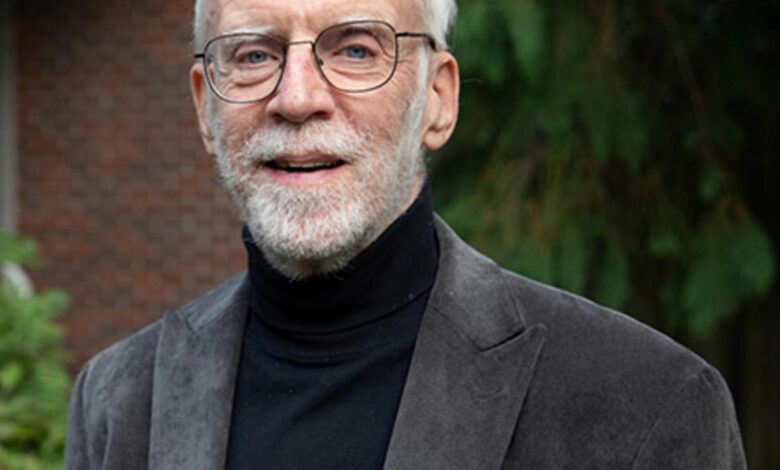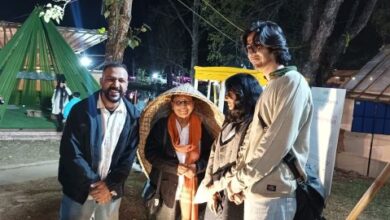How Hinduism inspired a Catholic priest’s path to vegetarianism

 In a world increasingly divided by borders — religious, cultural and ideological — the story of Francis X. Clooney, S.J., is both refreshing and profound. His decision to embrace vegetarianism, not as a fleeting lifestyle trend but as a deeply spiritual commitment, speaks volumes about the transformative power of interfaith understanding.
In a world increasingly divided by borders — religious, cultural and ideological — the story of Francis X. Clooney, S.J., is both refreshing and profound. His decision to embrace vegetarianism, not as a fleeting lifestyle trend but as a deeply spiritual commitment, speaks volumes about the transformative power of interfaith understanding.
Here is a Roman Catholic priest who, through his immersion in Hindu culture and spirituality, discovered a new way to embody his Christian values — at the dinner table and beyond.
What makes Clooney’s story especially compelling is the authenticity with which he narrates this inner transformation. During his formative years as a Jesuit in Kathmandu, Nepal, he was not only teaching students but learning from them —quietly observing how Hindu and Buddhist worldviews treated life with reverence, humility and interconnectedness.
In stark contrast to the Western diet he had grown up with, he saw how meat was not central to the lives of his students or their communities. This encounter did not lead to judgement or dogma — it led to discernment.
By voluntarily choosing a vegetarian lifestyle, Clooney did not reject his Catholic roots; rather, he expanded them. In the Christian tradition, especially within Catholicism, meals are sacred — from the Last Supper to the Eucharist.
Clooney’s insight was that what we eat matters spiritually. To refrain from meat in solidarity with the poor, out of reverence for all life, and in search of a simpler, more compassionate existence is not only compatible with Christianity — it echoes its highest ideals.
And it was Hinduism that helped unlock this realisation. Clooney’s understanding of Hindu principles like ahimsa (non-violence), dharma (ethical living) and the sacred interdependence of all beings inspired a radical yet gentle shift in consciousness. In a world that too often sees religions in opposition, his story reminds us that faiths can enrich one another, inviting deeper reflection and action.
His journey also has a powerful message for the Church itself. As Clooney rightly asked in his 1979 essay, what if the Church reimagined its table fellowship to reflect the global, ecological, and spiritual realities of the 21st century? What if vegetarianism became a liturgical practice — an act of reverence and restraint in a world of excess and exploitation?
Today, many young people — regardless of faith — are adopting vegetarian or vegan diets not just for health, but for justice, sustainability and compassion. Clooney stands as a bridge between traditions, generations, and the spiritual and the tangible. His story is not just about abstaining from meat — it is about cultivating a sacramental awareness of life itself.
In a time when dialogue between religions is often tentative and superficial, here is a powerful example of deep, lived interfaith engagement. A Catholic priest inspired by Hinduism to become vegetarian, finding in that choice a more holistic embodiment of Christ’s message — of love, humility, and care for the least among us, including animals and the Earth.
Indeed, as Clooney’s life shows, sometimes the most profound conversions happen not in cathedrals or temples, but in quiet kitchens and shared meals.





